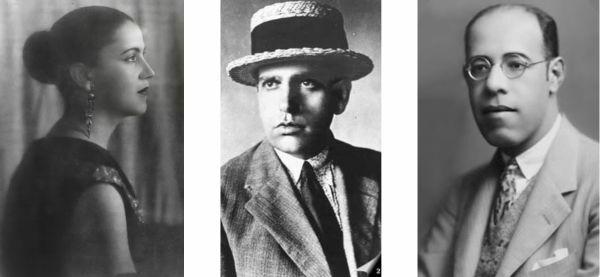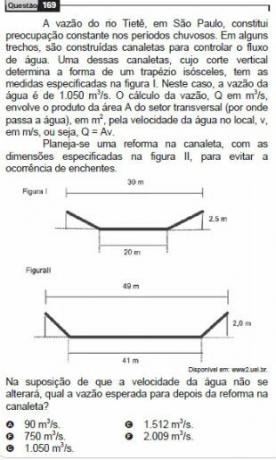O state of exception It is a constitutional mechanism in which the powers of the Executive are strengthened in relation to the powers of the Legislative It's from judiciary. Can be associated with authoritarian regimes if used to suppress democracy of a place or to ensure the maintenance of a ruler in power by force.
Here in Brazil, the Constitution delimits the existence of three states of exception, which are: state of defense, state of siege and federal intervention. These states of exception can only be activated in cases of war or major calamity, with a specified period to be in force. They also need the approval of the National Congress to be effective.
Read too: Martial law — when military law is imposed in crisis contexts
Topics of this article
- 1 - Summary of the state of exception
- 2 - What does state of exception mean?
- 3 - State of exception in Brazil
Summary about state of exception
In the state of exception, the powers of the Executive are strengthened.
If used to repress the population or keep a ruler in power, it is understood as an anti-democratic measure.
The Brazilian Constitution stipulates three states of exception: state of defense, state of siege and federal intervention.
These mechanisms can only be used in specific cases and determined by law.
With the state of exception, a series of individual freedoms of the population is restricted.
What does state of exception mean?
the state of exception it is an emergency government measure in which the powers of the Executive overlapm to the powers of the legislature and the judiciary. As a result, the decisions taken by the Executive are imposed, and Congress and the Judiciary have their powers reduced or their activities interrupted. In other words, the rule of law is suspended and power is concentrated in the hands of the government.
Through the state of exception, a government can impose authoritarian measures, such as ordering the arrest of individuals without order. court, implement a curfew, pass laws without the need for approval by the Legislature, prohibit demonstrations of the population etc. In short, the constitutional rights of citizens are limited within this scenario.
Do not stop now... There's more after the publicity ;)
The use of the exception state it's a drastic measure It is, in theory, should to occur only in times of great need, such as calamities caused by wars, serious social upheavals, natural disasters of great proportions, among others. As such, they are urgent measures used to ensure order in emergency circumstances.
As the state of exception considerably increases the powers of the Executive, the use of this feature should also happen on a temporary basis. It is understood that rulers who use the measures of a state of exception to sustain themselves in power for indefinite periods are acting in an authoritarian manner.
Read too: What is a military intervention?
State of exception in Brazil
Legally speaking, there is provision for a state of exception in Brazil, but the Brazilian legislation determines the scenarios in which this can happen. The use of a state of exception beyond what the law determines can be framed as an attack against the Democratic state.
The 1988 Constitution defines that, in emergency situations, the Brazilian government can trigger devices that are classified as states of exception. These devices are defined in our law as state of defense, state of siege and federal intervention. Let's look at the differences between each of them.
State of siege
OIt isstate of siegecan only be activated after the President of the republic consult the Council of the Republic and the Council of National Defense and only come into force with the submission of the proposal for the National Congress to deliberate. If Congress approves it, the state of siege comes into force and can be activated in cases of great national repercussion, when the measures of the state of defense are not sufficient or when Brazil is at war or needs to respond to an armed aggression by any nation foreign.
Brazilian legislation still determines that the state of siege can be to occur for a period of 30 days, which may be extended, but always for a new period of 30 days in cases of serious national repercussions. For cases of war or response to armed aggression, the deadline is indefinite and may be applied while the war is ongoing.
state of defense
This device can be activated after the president consults the Council of the Republic and the National Defense Council and can only be enacted when there is a need to restore public order and social peace. Therefore, the state of defense is only triggered when there is serious and imminent institutional instability or when there is a natural disaster of major proportions in progress.
In the state of defense, a series of prerogatives of the government is expanded, which would have the right to restrict some of the population's rights, such as secrecy of correspondence and telephone, for example. This device has a duration of 30 days, which can be extended for another 30 days, if the situation is not under control. this device must also have the approval of the National Congress to enter into force, requiring approval by an absolute majority. If it does not obtain an absolute majority, it must be closed immediately.
federal intervention
Federal intervention is characterized by temporarily suspend the autonomy that is given The municipalities and States by the federalist system adopted in Brazil. In this system, both municipalities and states and the Federal District have administrative autonomy, and the Union cannot intervene in their jurisdiction.
With the federal intervention, this autonomy ceases to exist on a temporary basis, being adopted in a context where there is a serious problem to be solved. The scenarios through which the Union can intervene in the states and in the Federal District are defined in Federal Constitution, examples being: maintaining national integrity, expelling foreign groups, in case of invasion; and put an end to a serious breach of public order.
Image credits:
[1] windmoon It is Shutterstock
By Daniel Neves
History teacher
Would you like to reference this text in a school or academic work? Look:
SILVA, Daniel Neves. "What is a state of exception?"; Brazil School. Available in: https://brasilescola.uol.com.br/o-que-e/historia/o-que-e-estado-de-excecao.htm. Accessed on April 14, 2023.



